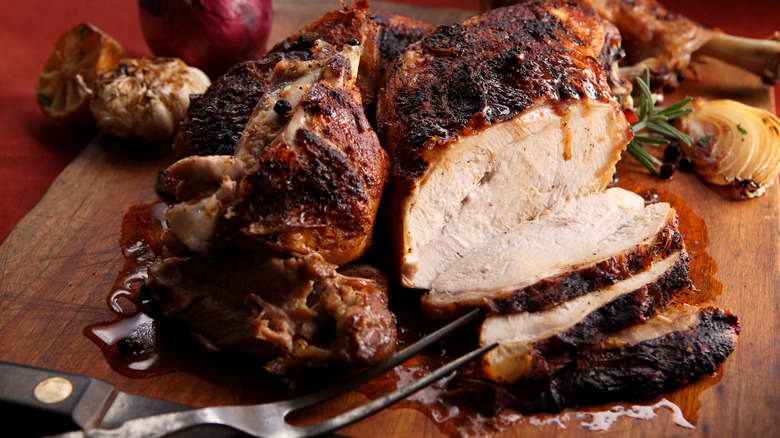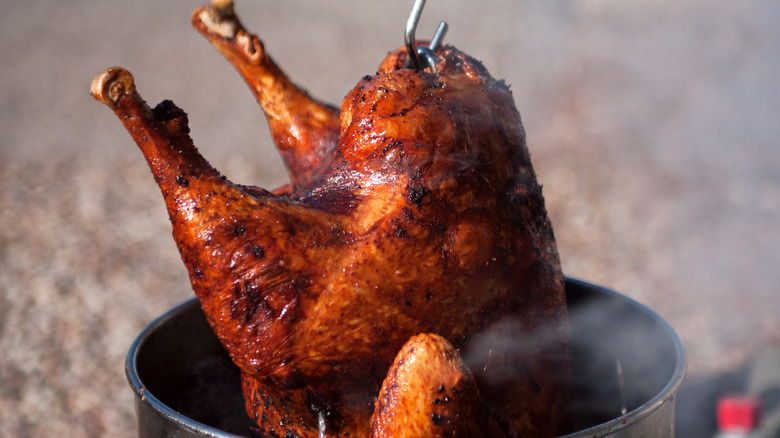How Long It Takes To Deep Fry A Whole Turkey
For some people, the Thanksgiving turkey is all about a crispy skin with tender, juicy meat. If this sounds like your kind of turkey, this may be the year to try a deep-fried turkey. Deep frying a turkey can be an intimidating task, and potentially dangerous if you don't do it right (remember the videos of turkeys flying out of the fryer?). But when done correctly you get a quickly cooked turkey that's sure to be a Thanksgiving hit.
One of the most challenging aspects of frying the turkey is understanding how long it takes for the bird to be cooked all the way through. If you remove it too early you risk food-borne illnesses, if you take it out too late it can be dry, or, worse, burned. Take the guessing out of deep frying your turkey by remembering this simple trick. For each pound of turkey, you'll need to deep fry it for three to four minutes per pound. So, if you had a 15-pound turkey, you'd want to cook it for 45 minutes to an hour.
You'll want to have your oil preheated to 375 degrees Fahrenheit. Use a meat thermometer before consuming your turkey to check for the proper temperature. According to the United States Department of Agriculture, white meat such as turkey breast should reach an internal temperature of 165 degrees Fahrenheit. Dark meat, like the turkey legs, is edible at 165 degrees Fahrenheit but tastes better at temperatures above 175 degrees Fahrenheit.
Safety tips for deep frying a turkey
Deep frying a turkey can come with a list of potential dangers if you're not careful. You should always use caution when working with hot frying oil, especially with this amount. There are a few other key safety rules to remember. To start, thaw your turkey completely before cooking. A 15-pound turkey can take three days to thaw completely in a refrigerator so give yourself ample time. The safest place to fry your turkey is outside, away from pets and children.
A flat, nonflammable surface is the ideal setup for frying. Be mindful of the seasonings on your deep-fried turkey, as some can cause oil splattering. Make sure you have the proper gear before you begin frying. Wear long sleeves and pants to minimize potential exposure to popping oil. You can also opt to wear goggles or other protective eye gear to protect your face while cooking. It's important to monitor the temperature of your oil as you cook to prevent it from getting too hot.
Investing in a good frying thermometer can help you safely track the temperature. Finally, having a fire extinguisher nearby is an important safety measure in case your oil catches on fire. These safety measures may feel extreme but can make a major difference in your Thanksgiving safety. An article from Industrial Safety and Hygiene News reported that Thanksgiving is the biggest day for residential fires in the United States. Don't take that risk this Thanksgiving.

